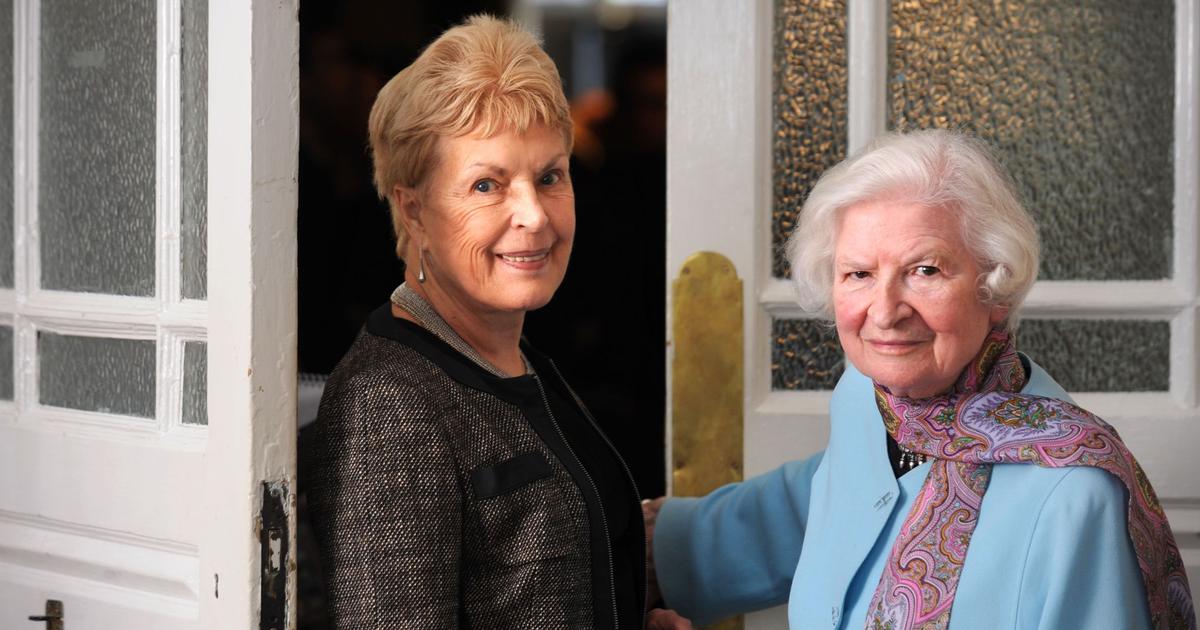Enlarge image
Author Enid Blyton (1897-1968): As early as 1960, she was accused of having "a touch of old-fashioned xenophobia" "
Photo: Blyton_Company_Ltd.
/ picture-alliance / dpa
In the UK, a debate has broken out over racist ideas in the work of children's author Enid Blyton.
The organization English Heritage, which, among other things, manages historic houses and looks after the memory of their famous residents, has updated the entry on its website about the writer, who died in 1968, reported the Daily Telegraph this week.
There it is now said that Blyton's work had been criticized because of its "racism, its xenophobia and because of its low literary value."
Conservative media reacted indignantly.
Blyton, known among other things for her youth book series "Five Friends", was a victim of the so-called Cancel Culture, wrote the "Daily Express".
This term denounces public ostracism because of alleged misconduct.
English Heritage put a blue commemorative plaque on Blyton's former home in Chessington, southwest of London, in 1997.
There is only room for a few words on the plaque.
The supplementary biographical note can be read on the organization's website and app.
The Save Our Statues campaign group, committed to protecting Britain's “extraordinary and irreplaceable historical and cultural heritage”, tweeted that the plaque should be removed rather than being stuck “as a perpetual insult”.
Trying to paint "a broader picture"
English Heritage, when asked by the AFP news agency, said the entry on Blyton had already been changed in July 2020 to indicate that some of their books "have been criticized for their racism". According to the organization, it tries to "paint a more comprehensive picture of the life of the personalities, which also includes aspects that people perceive as problematic." In this sense, after the "Black Lives Matter" protests, the biographical notes were looked through and, among other things, the entry on "Jungle Book" author Rudyard Kipling was revised: This is now a criticism of his "imperialist views and the romanticization of colonialism" pointed out.
In the case of Enid Blyton, the main focus of criticism is the story "Little Black Doll", in which the face of the doll is washed "clean" by the rain. Only then does the owner want the doll back. The story was first published in 1937, according to the Enid Blyton Society. English Heritage points out that an article appeared in the Guardian as early as 1966 that branded this story as racist.
In 2005 a report from 1960 came to the public from the archives of the Macmillan publishing house, in which the theater critic Phyllis Hartnoll sharply criticized the book "The Mystery That Never Was" submitted by Blyton. Among other things, she found a "hint of old-fashioned xenophobia" in the novel and advised against publication. The book was later published by another publisher.
The biographical note, which of course also mentions Blyton's great successes with children's book series such as "Five Friends" or "The Black Seven", ends with the note that in 2016 the Royal Mint decided against giving Enid Blyton a commemorative coin Honor 50th anniversary of death.
In 2019, the advisory committee's comments were published, according to which Blyton was considered a "racist, sexist, homophobic and not very highly respected author."
Blyton expert David Buckingham said no one wants to read stories like the black doll to a child these days.
Such ideas are "indicative" of the time, but this does not mean that the author is free from any responsibility.
Anna Eavis, the curatorial director of English Heritage, emphasized that they have "no plans at all to remove any of the plaques in London."
feb / AFP







